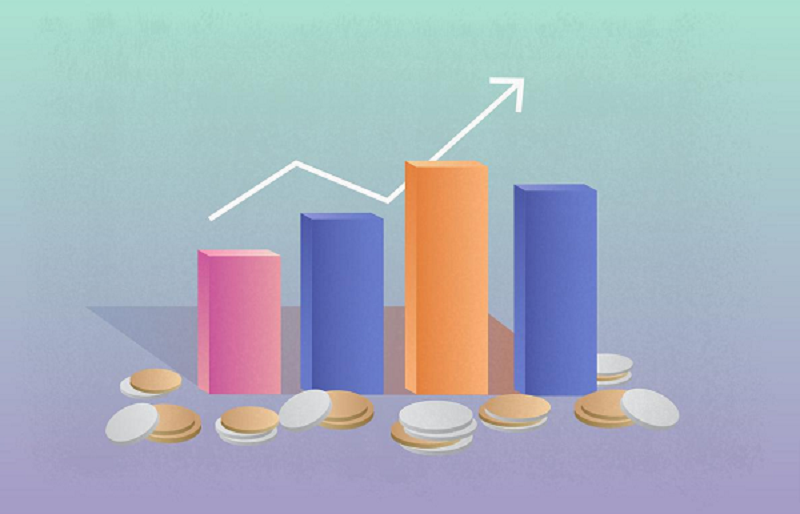According To – Rajkotupdates.News: The Government Has Made a Significant Interest Rate Announcement, Several months ago, the Indian government announced a major change in interest rates. The Reserve Bank of India (RBI) announced the decision following its Monetary Policy Committee meeting in March 2023. The RBI has chosen to maintain its repo rate at its current level of 4%. The RBI’s decision is expected to have a significant impact on the Indian economy, particularly on borrowing and lending rates.
RBI loan rates directly influence banks’ borrowing and lending rates, which, in turn, affect consumer interest rates. The repo rate is the interest rate at which the RBI lends money to commercial banks. As long as the repo rate remains unchanged at 4%, the loan interest rate is expected to remain stable or even decrease, resulting in an increase in consumer expenditures and economic growth.
It is a relief for debtors, especially those who borrowed at variable interest rates, that the RBI has made this decision. In keeping with the RBI’s target inflation rate of 4% (+/- 2%), the decision to maintain the repo rate was made in light of the current inflation rate. As well as maintaining its accommodative stance, the Reserve Bank of India has indicated that it will likely keep low interest rates to support economic growth.
Bankers and economists have welcomed the announcement, believing it will provide much-needed stability to the economy. Low interest rates, however, have been criticized for their long-term effects on the nation’s fiscal deficits and inflation rate.
As the government continues to support the economy through such measures, it is crucial to stabilize the Indian economy and promote economic development.
When the government announces a major interest rate change, what effect does it have?
Interest rates can have a substantial impact on a variety of economic factors, including borrowing, lending, investment decisions, consumer spending, and inflation.
A decrease in interest rates can result in lower monthly payments for borrowers, making it easier to buy items like a house or car. Reducing interest rates can also encourage businesses to invest in expansion and growth.
On the other hand, an increase in interest rates can lead to higher borrowing costs and possibly slow economic growth. The increase in interest rates can also affect the stock market, because investors may switch to fixed-income securities like bonds, which become more attractive as interest rates rise.
As a result of low interest rates, consumers may be more likely to make large purchases, such as buying a home or an automobile, when interest rates are low. When interest rates increase, consumers may become more cautious with their spending, which can negatively impact businesses and the economy.
A low interest rate stimulates economic growth and increases inflation. Inflation is another key factor influenced by interest rates. As a result, if inflation becomes excessively high, the government may increase interest rates in order to stabilize prices and reduce spending.
As a result of the reduction in interest rates, home loan interest rates may also decrease, making it easier for individuals to purchase a home. If the interest rate is lower, the borrower will pay less interest over the term of the loan, resulting in lower monthly payments. This can increase the accessibility of homeownership for many individuals.
Conversely, if the government raises interest rates, the interest rates on home loans could also rise. This means borrowers will pay more interest over the course of the loan, which will result in higher monthly payments. Homeownership can become more expensive and possibly unaffordable as a result.
However, it is important to observe that interest rates are not the only factor influencing home loans. A borrower’s credit score, the amount of the down payment, and the lender’s policies can also have an impact on the interest rate. As a result, individuals should conduct research and compare markets to find the best home loan option based on their financial situation.
The Government’s Major Interest Rate Announcement Has the Following Advantages:
Individuals and industries can benefit from the government’s proclamation regarding the interest rate.

Must Read – TrustFav.com: The Government Has Made a Significant Interest Rate Announcement
Advantages include:
Government announcement of lower interest rates has the advantage of reducing the burden on borrowers, which is one of the biggest advantages. People who have taken out loans for personal or professional reasons, as well as businesses that have taken out loans for various purposes, are included in this category.
In turn, lower interest rates can boost the economy by increasing spending. In addition to creating more employment opportunities and economic expansion, individuals and businesses who have access to affordable loans are more likely to invest in a variety of sectors.
It is also possible for lower interest rates to encourage people to diversify their investments. This can include stocks, bonds, and mutual funds. Lower interest rates may make returns on these investments more attractive, leading to an increase in investment.
Reduced EMIs (Equated Monthly Installments): Homebuyers can also benefit from a reduced interest rate, which can lower EMIs.
A reduction in interest rates can result in higher demand for products and services, particularly those requiring financing. For example, a reduction in auto loan interest rates can result in higher sales for the auto industry.
The Government’s Major Interest Rate Announcement: Advantages and Disadvantages
There are both benefits and drawbacks to the government’s decision to announce the interest rate. Here are some of them:
These advantages include:
- Individuals and businesses would be able to afford loans if interest rates were lower.
- Interest rates falling make investing in shares more attractive than fixed-interest securities, which can benefit the stock market.
- Households can improve their standard of living by reducing their mortgage payments and increasing their disposable income when interest rates decline.
The disadvantages are:
- The increased availability of credit may fuel demand and cause prices to rise as interest rates are lowered.
- As interest rates decrease, savers will receive less interest on their investments, potentially resulting in a decrease in income.
- Low interest rates can lead to currency depreciation, making imports more expensive and potentially reducing purchasing power.
- As investors seek higher returns from riskier investments, a reduction in interest rates may lead to asset bubbles.
- Having a lower interest rate may lead to people incurring more debt than they can afford, resulting in an increase in household debt.
In conclusion:
It is anticipated that the RBI’s announcement regarding interest rates will have a positive impact on borrowing and lending rates, leading to an increase in consumer spending and economic growth in the Indian economy. Nevertheless, the government must continue to monitor the situation and take the necessary steps to ensure long-term stability of the economy.Rajkotupdates.News: The Government Has Made a Significant Interest Rate Announcement





No Comment! Be the first one.